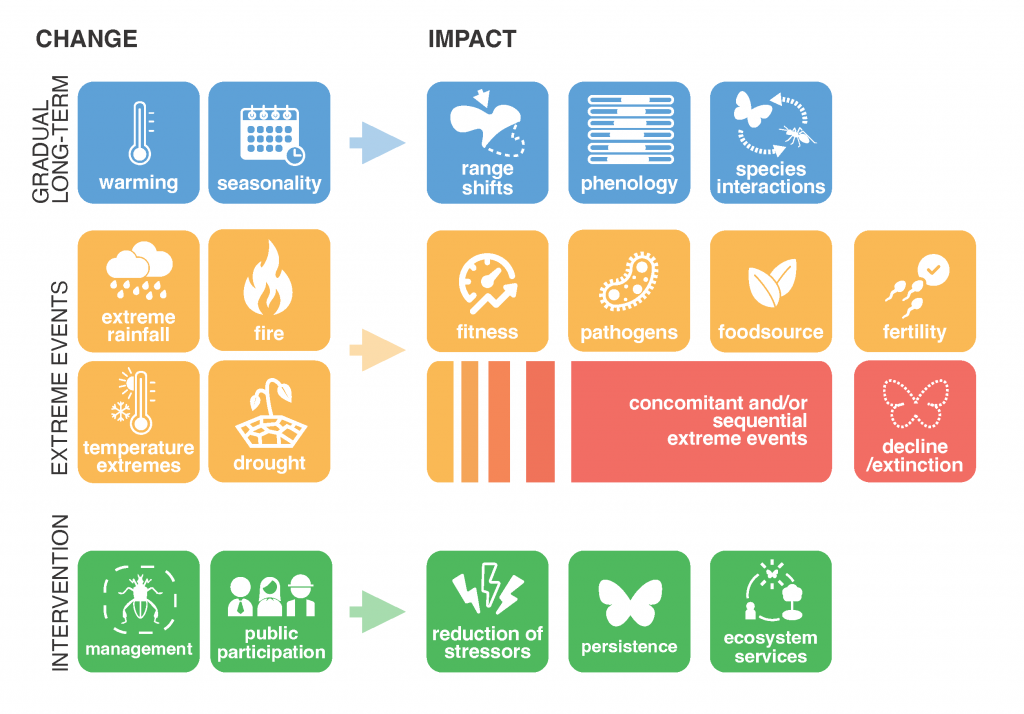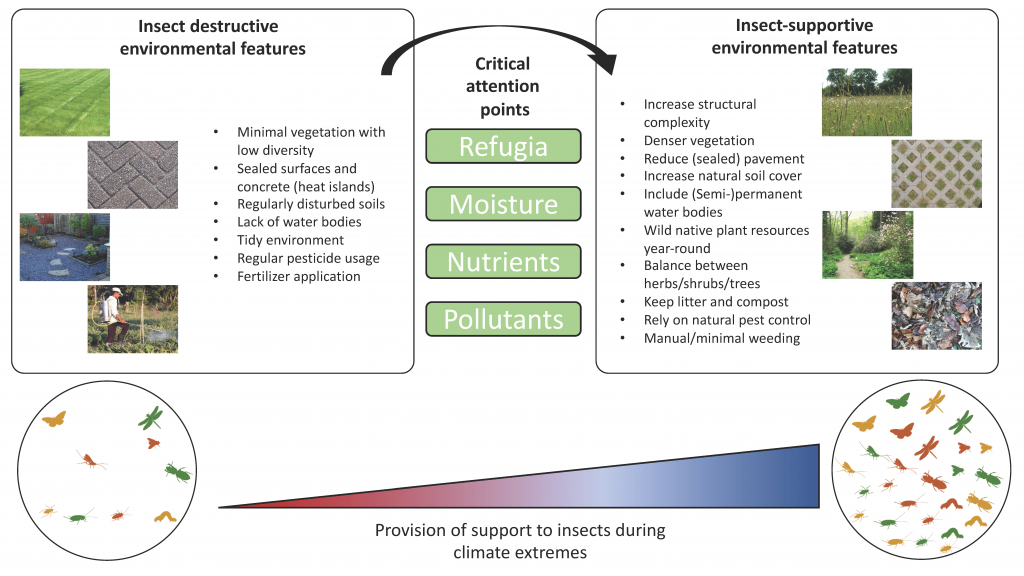Sorry to bug you, but insects need our help

Most crops require pollination by insects, and this role is played mainly by bees.

On many sub Antarctic islands, invasive rodents are starting to attack albatrosses because they have depleted the stocks of invertebrate prey.

Butterflies can survive heatwaves, but the extreme heat can cause them to become sterilised and unable to reproduce.
A new paper published today in Ecological Monographs summarises the effects of climate change and climatic extremes in driving insect decline. It warns that we must better understand and reduce the impact of climate change on insects or we will drastically limit our chances of securing a sustainable future based on healthy, functional ecosystems. The review was led by Professor Jeffrey Harvey from the Netherlands Institute of Ecology alongside 70 scientists from 19 countries around the world, including SAEF’s director, Professor Steven Chown from Monash University.
Gradual changes and extreme events
Professor Chown said that insects play a critical role in our ecosystems, and warned that they are in fast decline.
“Our gradually warming climate and a greater number of extreme temperatures, floods, fires and droughts, along with widespread landscape change, invasive species and pesticide use, are having major consequences for insects. These changes are impacting the environments that they live in, their distribution, breeding, behaviours and interactions with other species,” said Professor Chown.
For example, fruit flies, butterflies and flour beetles can survive heat waves, but in the process they become sterilised and unable to reproduce, becoming a story of the ‘living dead’. Meanwhile, cold-blooded insects have body temperatures and metabolisms that are strongly linked with the temperature of the surrounding air and are highly sensitive to climatic changes. On several sub-Antarctic islands, invasive species such as rodents have led to large declines in insect abundances. Not only are the insects threatened, but rodents are now starting to attack live albatrosses because they have so depleted their invertebrate prey.

This diagram highlights the impacts that climate change, extreme events and interventions can have on insects.
Ecosystems and the economy
“Earth’s ecosystems are intertwined, so one change can have many knock-on effects. As insect numbers dwindle, there is less food for birds, reptiles and amphibians, impacts which work their way up through the entire food web,” Professor Chown says.
“Insects also perform a range of vitally important services that sustain human society and our global economy. They carry out pollination, nutrient cycling and the decomposition of waste, services that we rely on for healthy ecosystems including for agriculture.”
As our climate warms, insects will need to adjust their seasonal life cycles and distributions. However, their ability to do this is hindered by other human-caused threats like habitat destruction and fragmentation, and pesticides. These complicated and widescale impacts must be addressed through changes to the way we live and appreciate the world around us.
Some solutions
The scientists offer a range of solutions and management solutions to buffer insects against climate warming. But at a societal level, they make it clear that we must meet the Paris Agreement targets to limit warming to below 2°C. In addition, they suggest that we need to ensure that environmental management programs take into consideration the conservation of insects, alongside larger more commonly known species such as mammals and birds.
They also offer some suggestions for what we can do on an individual level, including planting native species in our backyards which provide food and areas where insects can shelter during heat waves and cold snaps. People can also reduce their use of pesticides and other chemicals.
“Our little insects have superpowers, but their resilience has limitations,” says Professor Chown.
“We need a global effort to stabilise the global climate. But in the meantime, both governments and communities can take steps to make urban and rural environments more insect-friendly.”

This diagram highlights what we should and shouldn’t do to support insects.
Publication
Harvey, J.A., et al (2022). Scientists’ warning on climate change and insects. Ecological Monographs, e1553. DOI: https://doi.org/10.1002/ecm.1553